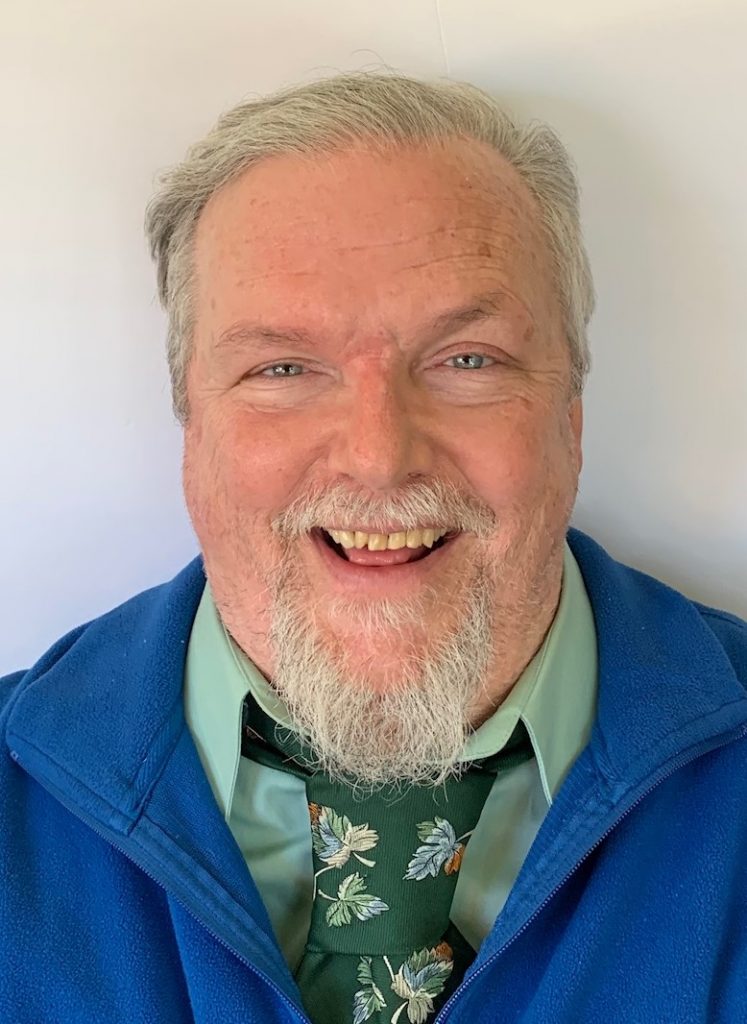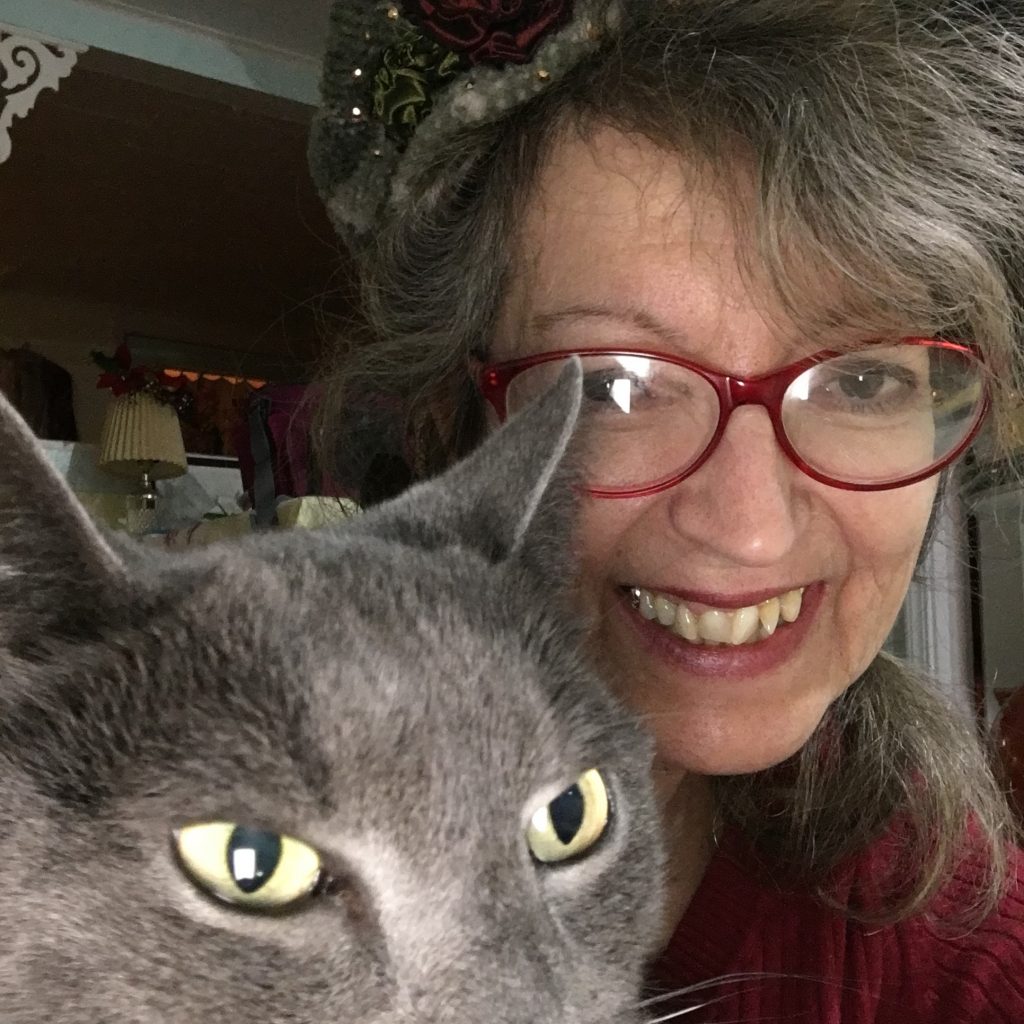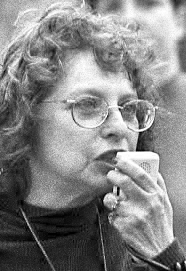The popular blog site Mad In America just published my post about my psychiatric survivor #MadPride #Disability journey since I broke my neck in 2012: (If you would like to hear this as a voice synthesized podcast, click play below.)
By David W. Oaks

For more than four decades, I have worked as a psychiatric-survivor human rights activist. Then, at the end of 2012, I broke my neck. As readers of my blog posts, such as those on Mad in America, know, I have devoted the past few years to rehab and activism. But it has been a while since my last personal blog. Let me sum up my Mad Pride journey today, because a lot is changing.
As a quick background, all of my grandparents were immigrants from Lithuania. Both of my grandfathers were coal miners for a combined 31 years. I was raised in a very working-class neighborhood on the south side of Chicago, and got a scholarship to Harvard. During my sophomore, junior, and senior years, I experienced the psychiatric system. This included involuntary psychiatric drugs, such as on the sharp end of a needle while being held down on a bare mattress on the floor in solitary confinement.
During my junior year, Harvard’s volunteer social change agency, Phillips Brooks House, referred me as an intern at Mental Patients Liberation Front in nearby Central Square. MPLF is one of the very early psychiatric survivor activist groups from the 1970’s. After a total of five psychiatric lockups I graduated with honors in 1977, and studied community organizing with the infamous group ACORN, based on the methods of Saul Alinsky. Community organizing with psychiatric survivors became my career.
MindFreedom International: Winning Human Rights in Mental Health!
Fast forward: I co-founded and was Executive Director for 25 years of the independent nonprofit coalition, MindFreedom International (MFI) which fights for human rights in mental health. MFI has always been wide open to everyone who supports human rights, including attorneys, mental health workers, family members, and the general public. But surveys show that a majority of MFI members identify as having personally experienced human rights violations in the mental health system, that is, psychiatric survivors.
Because MFI’s constituency tends to be low-income, most groups in this field need to rely on government support to exist. That is understandable. But an amazing thing about MFI is that it has always mainly been supported by donations from individuals, poor and rich, and some private grants.
Because of this independence, MFI has always had a different center of gravity than most similar groups: Revolution! We at MFI always attempted to connect with other movements for social justice, such as prisoner’s rights, LGBT+, anti-racism, anti-poverty, and environmentalism. For the last few decades, one of our closest connections has been with people with disabilities.
A Tale of Two Movements: Psychiatric Survivors and People With Disabilities
Frankly, the connection between psychiatric survivor Mad Pride and the physical disability movement has been a bit complex, and sometimes even challenging. For example, there appears to be a difference about the issue of diagnoses. Don’t we radical psychiatric survivors reject all labels? Don’t people with physical disabilities often rely on their labels? Yes, “disabilities” are socially constructed; it is our society that is disabled. But I am aware that some leaders do not always understand our unity.
Unfortunately, I have even seen a leader of a disability Independent Living Center falsely say, repeatedly, that MindFreedom pushes people to quit psychiatric drugs. Wrong. In fact, there are many MFI members who willingly choose to take prescribed psychiatric drugs, and they have told me they feel totally comfortable and accepted.
Both the psychiatric survivor movement and the movement for people with disabilities are united in their goals. Both support the empowerment and choice of the Marginalized And Disempowered (MAD). I’ve written about this before, and I will again, but this is not my point now.
For now, I will point out that calling someone a name they do not want is labeling. Asking for a diagnosis from a pro you trust, willingly, ain’t labeling. More later, but for now, understand that the unity between psychiatric survivors and people with disabilities is more than theory for me. It is my life.
Our Cat, Bongo, Plays a Key Role in My Life

At the end of 2012, in an attempt to retrieve our cat, Bongo, I fell and broke my neck, becoming a very disabled quadriplegic in a power chair with impaired voice and hands. I do not recommend this drastic approach, but one silver lining is that now I have absolutely no problem at all bridging both the psychiatric survivor movement and the entire disability movement!
As some of us activists have joked about ourselves when we encounter challenges again: I have “re-established my credentials.”
Because of my profound disability challenges, I needed to retire from MFI in 2013. During the past seven-and-a-half years, I have been working on rehab.
I have improved my breathing by twice-daily exercises with heavy weights and an incentive spirometer, bringing my capacity from one-fourth to one-third typical breathing. A great improvement, but I am of course, at the age of 64, one of the most vulnerable folks during the COVID-19 crisis.
I have sought to improve my impaired speech. This has involved years of speech therapy and a surgery on my vocal folds.
Before my fall I could type 120 words per minute, now I cannot type at all. So I have worked to improve my memory because projects and writing need to stick up there, in the mind. Now, in one sitting, I can pretty easily and reliably memorize two shuffled decks of cards (a total of 112 cards, counting jokers and promo cards). I can repeat the memorized order of cards, blindfolded, in about five minutes. I have recited shuffled double decks perfectly 37 times.
There are many other ways I have applied the lessons I learned in our psychiatric survivor movement to my own rehab. For example, back in 1989, I started a men’s support group called the BUBS. During this COVID crisis we have been meeting weekly via Zoom. This sort of small group, mutual peer support, as we know from our movement, is invaluable to rehab and surviving a crisis.
Before my fall, as a fiercely independent Pagan, I relied on my occasional trips to the Oregon wilderness for three days of fasting and reflection. In fact, after one of these trips, I recorded a brief statement, which can be found on YouTube by searching for: david w oaks neptune beach.
Since my fall, to make things easier, I have joined the nearby Unitarian Universalist Church. Yes, a church. I am glad I did, because the UU philosophy works for me, and they are very supportive of people with disabilities. For example, I helped re-start an Access Committee at our church with support from the reverend.
But What Would Judi Chamberlin Say?

As I have expressed, and many other psychiatric survivor activists know, I have always fought against involuntary and unscientific diagnoses. “Label jars, not people!” as my friend in MPLF, the late Judi Chamberlin, liked to say.
After my accident, I clearly had thoughts and feelings consistent with classic Post-Traumatic Stress Disorder, such as recurring vivid nightmares of falling off my bed that would continue after I woke up. Folks, I cannot even budge once I am lying in my bed!
I have found my psychotherapist, Dr. John Bundy, to be very helpful in addressing these problems. Finding a psychologist that works for me took a bunch of my skills and networking from our movement. Dr. Bundy is superb, and because of a childhood accident, is 100% blind. Perhaps we connect more as peers because of our disabilities.
Yes, many friends and family have encouraged me to write a book, because there are many other tools from our movement I have used in my rehab journey, that may help the general public now.
Silver Linings of Planetary Crises: No New Normality!

Looking for silver linings is one of the lessons I gained as a psychiatric survivor with major physical disabilities. Today, as the whole world struggles with COVID-19, there are quite a few silver linings. One of these is that undeniably we are all connected in one planetary community, obviously and deeply.
To the right are images of my home care team wearing masks. This montage is a tribute to these truly essential workers, crucial for my independent living and our household. One of my home care workers pointed out that essential workers have always been essential, even before this pandemic. Good point. Mainly, I need help thanking and giving credit to my home care team.
Ačiū! Ačiū! Ačiū! This is an ancient Lithuanian word that means “thanks.” This gratitude is why I named my consulting business Aciu! Institute. Thank you, everybody, for your support!
During this rehab, I have attempted to blog now and again. But I will now try to do this more frequently. I believe there are real life lessons from the psychiatric survivor and disability movements which can assist the general public right now, in this era of viruses and climate crisis. I have often heard media outlets say people with disabilities or mental problems make up ‘x’ percent of the public, such as 18% or 15%. But, for example, everyone on Earth addresses the severe trauma of how we treat nature. Scientists suggest that none of us have, or even can, get a grip on reality.
We are now all the 100%. In today’s world, if you are not crazy you may be nuts!
Today we often hear about how “normality” is gone. But normality never really ever existed. Kind of like a unicorn. Many are now talking about a future “new normality.” But this is a lie! Normal is dead forever. One way or another, for better or worse, we won!
This year, my consulting business, Aciu! Institute, LLC, has its second major client, MindFreedom International! I report to their superb director who has taken my place very well, psychiatric survivor Ron Bassman of Colorado. I am helping build their network of Affiliates and Sponsors, updating the list of past groups and finding new ones. One of the uniting tasks that Ron is encouraging for these groups is to support a retooled MindFreedom Shield. Shield is a campaign to support individuals who are expressing concerns about their involuntary psychiatric procedures, issuing human rights alerts that encourage action, similar to pressure campaigns by Amnesty International.
Here in Eugene, Oregon, USA, we continue to build our own MFI local affiliate, MindFreedom Oregon and MindFreedom Lane County. We meet every month by Zoom now. Contact me if you are interested: revolution@aciu.info.
MindFreedom has always called for a global revolution. Wouldn’t a planetary revolution be a nice thing to try? Is there any other way? We can discuss what kind of revolution, but at least talking openly about this would be a start.
As well as MindFreedom, my Aciu! Institute consulting business is assisting a variety of disability and mental health groups. I will blog about this in future posts. Even though I only work a few shifts a week from home, working remotely with my superb administrative assistant Fian Peng, launching Aciu! helps my purpose and meaning. I last ran a for-profit back when I was a little kid, selling seeds and lemonade. I then worked for decades for wonderful nonprofits. It is a blast returning to a for-profit dedicated to social and environmental change!
Building Support for the Next Phase: Revolution!
After I broke my neck, the values and wisdom from our movement helped me each day in my real-life endeavors. Many call this inspiring. I call our social change Mad Pride movement inspiring. Once in a while, someone will question the whole idea of “Mad Pride.” (I sometimes wonder if they like “Normal Shame.”) But for the last few years, our Mad Pride crazy wisdom has helped support and sustain our home, my independence and my life.
One skill I learned in our movement was grassroots fundraising, from many people, poor and rich. While I was in Craig Hospital rehab, we held a number of support drives to raise funds. For instance, quick support from people like you is how I bought my wheelchair van.
Since then, I have not done much fundraising. For one reason, my wonderful wife, Debra, and I live a comfortable life on our quarter-acre homestead we call Mad Swan. One of the absolutely best things in my early adulthood was falling in love with the amazing and always-fascinating Debra.
But while we are not struggling for food, I do want to use my background and experience to help justice and transformation today.
My family created a “David W Oaks Irrevocable Medical Trust” that supports my independent living. Support from this trust is helping me launch my Aciu! Institute consulting.
I pledge to post more often to my own personal blog (www.davidwoaks.com), my consulting business blog (www.aciu.info), and of course Mad in America, which has helped amplify my concerns over the years, so that I know my leadership is still here and helpful.
More than ever, I especially value your feedback. The Mad in America community is vibrant, and I look forward to your comments here. I will try to reply to as many as possible. You will now also find me frequently on Facebook, including our group UU Mental Health Justice. On Reddit we have created subreddit r/MadPride. On Twitter and LinkedIn, let us explore what challenges and opportunities can be found in the intersection of #MadPride and #Disability. (You may comment here, and/or join the lively debates in the comment area at the end of my post on Mad In America.)
Ačiū!
—————————
Editor’s Note: If you wish, you can make a one-time or monthly donation to David W. Oaks Irrevocable Medical Trust. Your gift is not tax-deductible, but is very important to his independent living. He is launching his consulting business, Aciu! Institute.
For more information about donating to David W. Oaks Irrevocable Medical Trust, go here: https://davidwoaks.com/welcome/support
